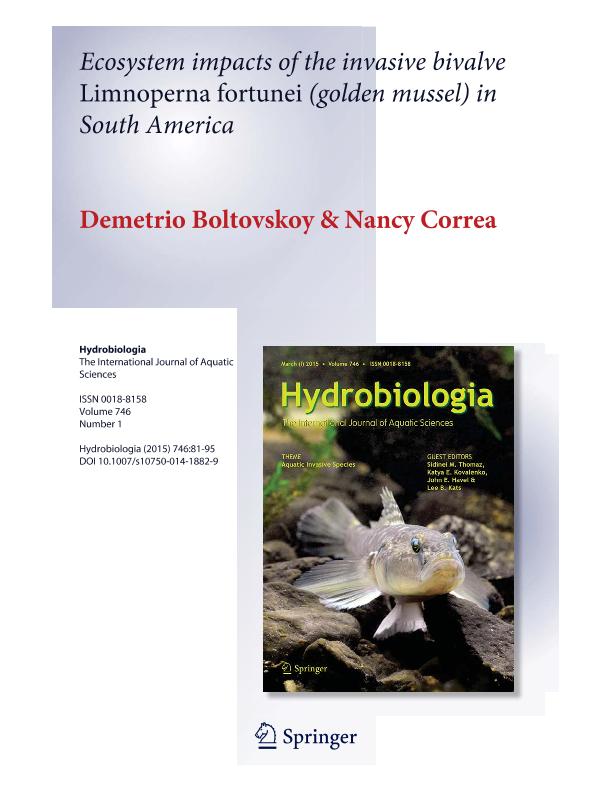Artículo
Ecosystem impacts of the invasive bivalve Limnoperna fortunei (golden mussel) in South America
Fecha de publicación:
01/2015
Editorial:
Springer
Revista:
Hydrobiologia
ISSN:
0018-8158
Idioma:
Inglés
Tipo de recurso:
Artículo publicado
Clasificación temática:
Resumen
We summarize current knowledge on the effects of the invasive Asian bivalve Limnoperna fortunei (introduced in South America around 1990) on local biota. Limnoperna modifies nutrient concentrations and decreases concentrations of particulate organic matter in the water-column (including phytoplankton and zooplankton), thus enhancing light penetration and stimulating growth of periphyton and macrophytes. Selective grazing and modification of the N:P ratio are responsible for strong enhancements of toxic cyanobacterial blooms. Limnoperna beds significantly enhance the numbers, biomass and diversity of practically all accompanying invertebrates. The mussel´s planktonic larvae represent an important food item for the larvae of 18 fish species, while juveniles and adults are consumed by at least 50 fish species. Limnoperna is the first and only abundant benthic filter-feeding animal in South American continental waters. The fact that it intercepts and retains in the freshwater lotic domain particulate organic matter that would otherwise be swept into the sea must represent an important energetic subsidy, but the ecosystem-wide consequences of this trophic shift have not yet been addressed. Comparison with the impacts of the zebra mussel in Europe and North America suggest important differences.
Palabras clave:
Limnoperna
,
Impacto
Archivos asociados
Licencia
Identificadores
Colecciones
Articulos(IEGEBA)
Articulos de INSTITUTO DE ECOLOGIA, GENETICA Y EVOLUCION DE BS. AS
Articulos de INSTITUTO DE ECOLOGIA, GENETICA Y EVOLUCION DE BS. AS
Citación
Boltovskoy, Demetrio; Correa, Nancy Myriam; Ecosystem impacts of the invasive bivalve Limnoperna fortunei (golden mussel) in South America; Springer; Hydrobiologia; 746; 1; 1-2015; 81-95
Compartir
Altmétricas




